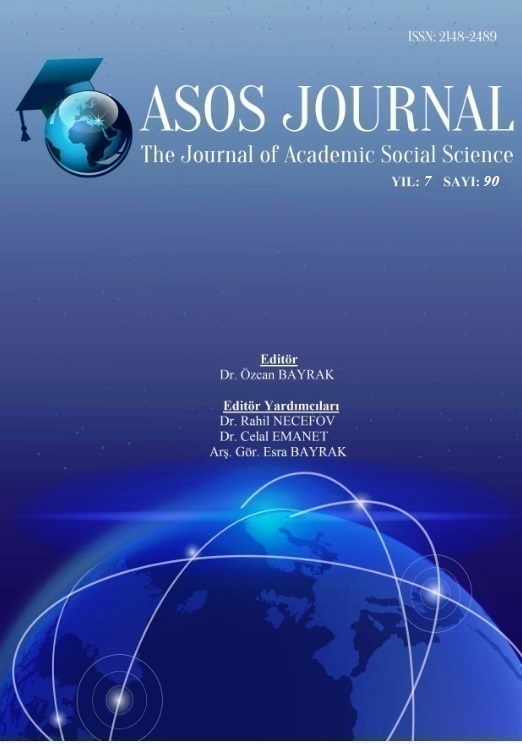Author :
Abstract
Üzerinde yaşadığımız dünya, bireyleri bir yandan sosyal alana adapte etmek için benzeşmeye yöneltmekte, öte yandan bu benzeşik bireyler topluluğunda kendi biricikliklerini ortaya koymak için "ışıldamak" durumunda bırakmaktadır. Bu durum yüzyılımızda kimliğini arayan, kimliğinden memnun olmayan yahut kimliğini ortamına uygun halde inşa etmek isteyen bireylere yeni bir projelendirme alanı sunmaktadır. Diğer taraftan sivil olan ile siyasal olana yönelik henüz bir ayrımın yapılmadığı yüzyıllar öncesinden tınısını günümüze yayan sivil toplum kavramı, çağlar boyu sivil toplum üyesinin bir devletin mensubu olan yurttaş ile aynı anlamda kullanımına şahitlik etmiştir. Başka bir deyişle, bireylerin daha iyi bir hayat için mülkiyet, özgürlük, idare gibi konularda bir araya gelerek anlaşmaları, günümüzde sivil toplum alanına tekabül etse de, milattan önceye uzanan zaman dilimi boyunca bu alan, şimdilerde devlet olarak anılan yapının tesir alanına işaret etmektedir. Sivil toplum kavramı bu nedenle hem anlamsal, hem de toplumların demokratiklik düzeyine göre değişen işlevsel farklar göstermesiyle birçok toplumda paradoks yaratmaktadır. Çalışmanın amacı sözü edilen kavramlara açıklık getirmek ve aralarındaki ilişkisel bağlantıları gözler önüne sermektir. Bu doğrultuda çalışmanın ilk bölümünde kimlik kavramı, kavramın tarihsel dönüşümü, bireysel ve kolektif kimlik, sivil ve siyasal kimlik kavramları ve benzerlikleri ile çerçevelendirilmekte, ikinci bölümde kimlik kavramı farklılıktan ötekiliğe uzanan skalasıyla ele alınmakta, üçüncü bölümde ise kimlik kavramının sivil toplum alanı ile ilişkisi sunduğu açılımlar ve getirdiği sınırlamalar düzleminde irdelenmekte, genel değerlendirmenin yapıldığı sonuç bölümü ile çalışma neticelendirilmektedir.
Keywords
Abstract
While the world leads individuals to simulate to adapt them to the social space on the one hand, on the other hand, it leaves individuals who are similar to "shine" in order to reveal their uniqueness. This situation presents a new project area for individuals who are looking for their identity, who are not satisfied with their identity or who want to build their identity in a suitable environment. On the other hand, the concept of civil society that has survived from centuries ago, when the civilian and the political have not yet made a distinction, has witnessed the use of civil society members and citizens in the same meaning over the ages. In other words, individuals come together for a better life in matters such as property, liberty, and administration, and today means civil society. But during the time period that dates back to the ages, this area was now referred to as the state. The concept of civil society therefore creates a paradox in many societies, with both semantic and functional differences that vary according to the level of democratization. The aim of the study is to clarify the mentioned concepts and to reveal the relational connections between them. In this respect, in the first part of the study, the concept of identity is framed by the historical transformation of the concept, the concepts of individual and collective identity, concepts of civil and political identity and similarities. In the second chapter, the concept of identity is discussed with the scale ranging from difference to otherness. In the third chapter, the relationship between the concept of identity and the civil society area has been evaluated in the plane of expansions and limitations, the study was finished with the conclusion section of the general evaluation.





